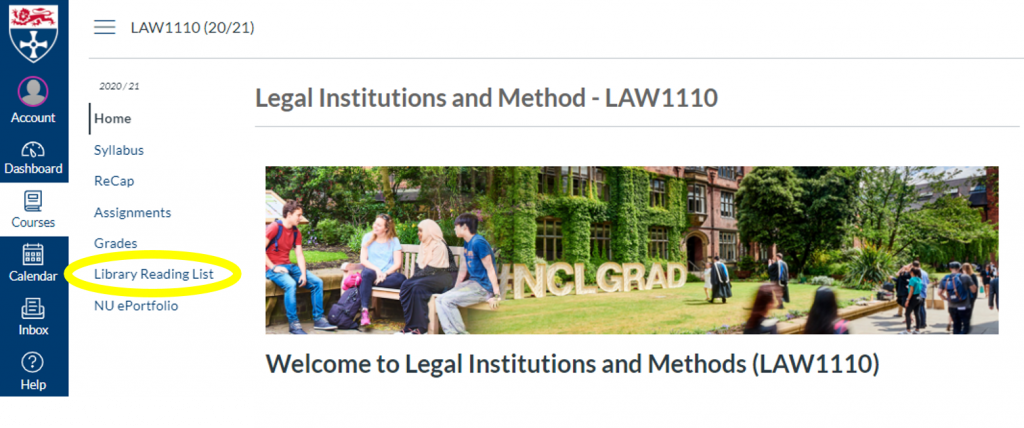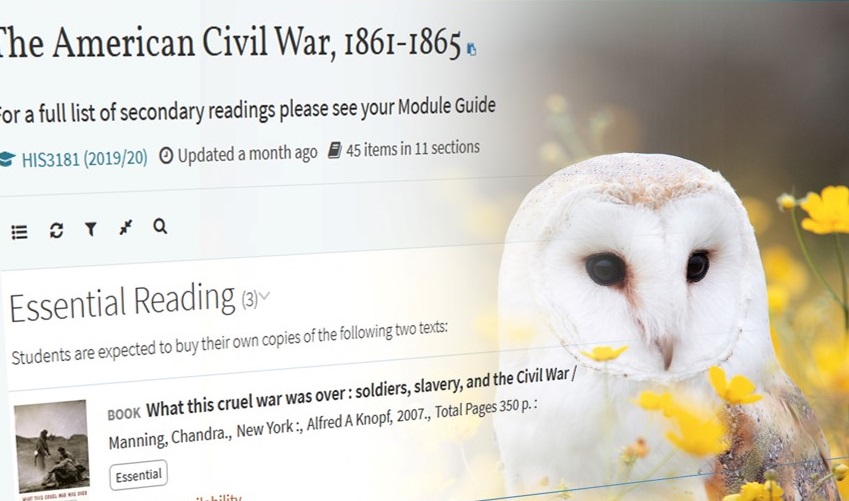A reading list is an integral part of the student experience at University. Although it may be viewed as an archaic term these days, students are ‘reading’ for a degree. How do the students know what to read? It is the academic’s role to guide them.
The University Library’s Reading Lists service (Leganto) allows the Library to work with teaching staff in providing this information to the students in an online and consistent way, through their Virtual Learning Environment (Canvas or the Medical LE) alongside their teaching materials.
The University Library’s Reading Lists service is routinely promoted to the students throughout induction. It contains essential, recommended and background reading for modules taught within Newcastle University. Now we’re using Canvas, it also appears in the standard menu within each course and will be more accessible than in our former VLE.

So, as teaching staff, what are the benefits of using this service?
- You have control and can create, manage and update your own reading lists online.
- The Library will ensure online access to resources (if available). If an e-book is not available then the correct number of print copies will be purchased based on the essential, recommended or background reading tags you apply to each item on your list.
- Essential, recommended and background reading tags help students prioritise their reading.
- CLA scans (digitised book chapters and articles) can easily be requested and acccessed through Leganto. There will be no need to email us or fill out a web request form; simply tag the item on your list and the Library will do the rest.
- The same principle applies to new books. Once on the reading list this information will trigger adding new material to our stock – there will be no need to contact us separately.
- You can export a reading list to your module guide or handouts. This will save you time by only needing to create the list in one place.
Using this system is a wise choice as it ensures the Library knows what you need to support your teaching and will offer your students direct access to the required resources.
You can find more information on this service via our website, or contact the reading list email.





